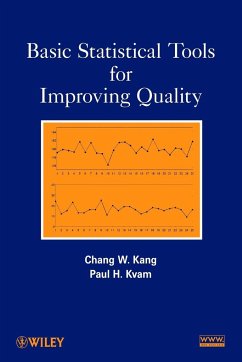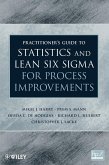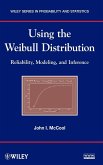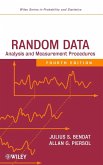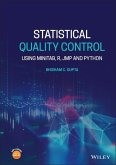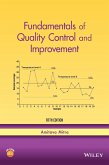This book presents a clear, quick understanding of the basic techniques in statistical quality control that are employed by business and industrial managers alike. It differs from other technical manuals in two ways: (1) the basic tools of SPC are introduced in a no-nonsense, simple, non-math manner, and (2) the methods can be learned in an uncomplicated fashion using free software (eZ SPC 2.0), which is available as a downloadable product. It aids applied statisticians, practitioners, and Six Sigma enthusiasts in engineering, technology, marketing and business; it also serves as a supplemental text for students in quality control courses.
A complete guide to the essential statistical process control techniques for understanding data and problem solving Organizations across various areas of industry strive to improve the quality of their products, employees, and services, utilizing the technique of statistical process control (SPC) to measure variables in order to determine where improvements need to be made. Basic Statistical Tools for Improving Quality provides an introduction to improving the quality of a process or a system, primarily through SPC, while also showing how to implement continuous improvement into process control. The book analyzes quality management problems through cohesive explanations, real-world applications from different industries, and interpretations of results using software. Promoting a 'learn by example' approach, the authors introduce the basic tools of data analysis, control charts, and process improvement in a comprehensive style that does not rely heavily on mathematics. The book utilizes the author's own user-friendly eZ SPC software to carry out key practices such as making tests and confidence intervals and using graphical statistics to communicate ideas. Basic control charts for means, variances, and proportions are featured along with advanced control charts and guidance on: * Generating a control chart to evaluate and monitor a process * Detecting the first moment when a process breaks down or goes out of control * Creating process improvement by investigating potential factors that affect the process and/or process output * Implementing correlation analysis, regression, analysis of variance, and factorial design using eZ SPC Real-world examples illustrate the discussed methods, and every chapter contains a set of exercises. All presented data sets are available on the book's related website along with the eZ SPC software, which readers can freely download to create their own results and analyses. Basic Statistical Tools for Improving Quality is an excellent reference for applied statisticians and practitioners working in the fields of engineering, business, and management science. It also serves as a supplemental book for courses on quality control at the upper-undergraduate and graduate levels.
Hinweis: Dieser Artikel kann nur an eine deutsche Lieferadresse ausgeliefert werden.
A complete guide to the essential statistical process control techniques for understanding data and problem solving Organizations across various areas of industry strive to improve the quality of their products, employees, and services, utilizing the technique of statistical process control (SPC) to measure variables in order to determine where improvements need to be made. Basic Statistical Tools for Improving Quality provides an introduction to improving the quality of a process or a system, primarily through SPC, while also showing how to implement continuous improvement into process control. The book analyzes quality management problems through cohesive explanations, real-world applications from different industries, and interpretations of results using software. Promoting a 'learn by example' approach, the authors introduce the basic tools of data analysis, control charts, and process improvement in a comprehensive style that does not rely heavily on mathematics. The book utilizes the author's own user-friendly eZ SPC software to carry out key practices such as making tests and confidence intervals and using graphical statistics to communicate ideas. Basic control charts for means, variances, and proportions are featured along with advanced control charts and guidance on: * Generating a control chart to evaluate and monitor a process * Detecting the first moment when a process breaks down or goes out of control * Creating process improvement by investigating potential factors that affect the process and/or process output * Implementing correlation analysis, regression, analysis of variance, and factorial design using eZ SPC Real-world examples illustrate the discussed methods, and every chapter contains a set of exercises. All presented data sets are available on the book's related website along with the eZ SPC software, which readers can freely download to create their own results and analyses. Basic Statistical Tools for Improving Quality is an excellent reference for applied statisticians and practitioners working in the fields of engineering, business, and management science. It also serves as a supplemental book for courses on quality control at the upper-undergraduate and graduate levels.
Hinweis: Dieser Artikel kann nur an eine deutsche Lieferadresse ausgeliefert werden.

